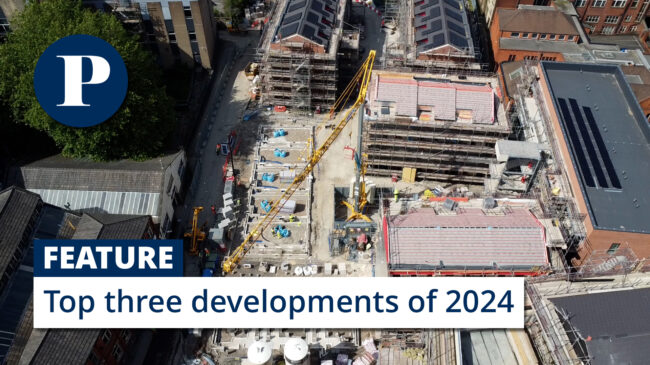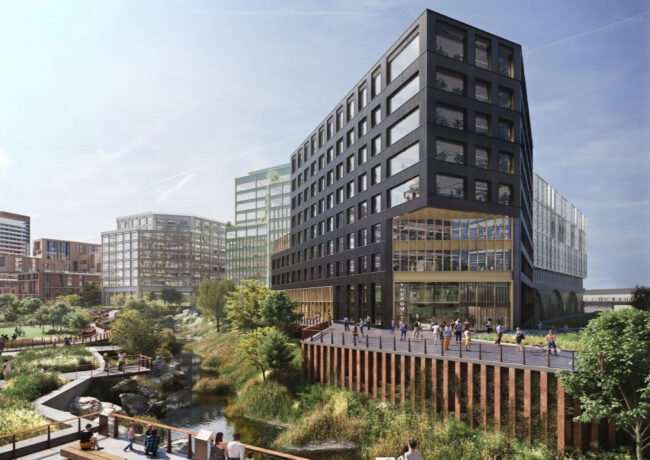Commentary
What now for devolution?
The first seven days of Labour government have been all about urgency – reform planning, scrap ‘gimmicky’ levelling up, bring back onshore wind, set housing targets, create council of nations and regions – yet one policy area is waiting for its own big launch into this blockbuster season – devolution.
There were promises in the manifesto about broadening and deepening the spread of combined authorities and mayors. Does that mean additional areas, more mayors, we don’t yet know.
Mayors of combined authorities in the North elected in May 2024
- Tracy Brabin, West Yorkshire – Labour
- Andy Burnham, Greater Manchester – Labour
- Oliver Coppard, South Yorkshire – Labour
- Ben Houchen, Tees Valley – Conservative
- Kim McGuinness, North East – Labour
- Steve Rotheram, Liverpool City Region – Labour
- David Skaith, York and North Yorkshire – Labour
Is there more money for the devolution movement, probably not, not without growth. Deliver with what we’ve got. The meeting between the Prime Minister, Deputy Prime Minister and metro mayors on Tuesday was encouraging in its symbolism but little emerged from it in terms of action beyond new local growth plans and consultation on the emerging industrial strategy.
Labour has been nothing but measured, urging caution about spending aspirations and basically setting up under-promise-then-over-deliver scenarios on policy priorities.
In her maiden speech as chancellor, Rachel Reeves said she wanted to manage expectations around spending, nothing unfunded would be mooted. Grown-up politics, a quiet radicalism to change the country by doing politics without doctrine, these are the notes being played.
Yet Labour now returns to the devolution movement it started with legislation to create combined authorities before losing power in 2010 and which Conservatives and Liberal Democrats continued to pour more money into, famously with George Osborne as champion of the North. Can it resist the call from Labour mayors to do more with more?
There are also areas of the country that voted Labour, where voters will need rewarding, which don’t have combined authorities. There are places bidding such as Cheshire. Can the list of CAs, currently 10 with seven of them in the North, be added to without breaking self-imposed spending rules?
What we do know is that the noises are good for the pro-devo-watchers. Angela Rayner, a characterful deputy PM with a regional accent in more ways than one, is taking up the local government brief once owned by John Prescott when regionalism was to the fore under New Labour. Jim McMahon, ex-leader of Oldham, is part of Rayner’s ministry. Transport Secretary Louise Haigh chose Greater Manchester for her first official visit and pledged to support local leaders in delivering better buses – a procrastinated process under the previous administration.

Angela Rayner, deputy prime minister, meets metro mayors at 10 Downing Street. Credit: Alice Hodgson / No 10 Downing Street via CC BY-NC-ND 2.0, bit.ly/40heHCq
Rayner used the meeting with mayors “to mark the beginning of the process of establishing Local Growth Plans across the country.” Mayors will be asked “to identify local specialisms, and contribute to work on a national industrial strategy”.
VIDEO | What Labour needs to do in its first 100 days
The urgency of ‘no time to waste’ and ‘get on with it’ in the debut speeches in office this week suggest existing mechanisms will have to be used, there is no appetite for the delays that would be caused by establishing new programmes.
Existing money into existing programmes.
If devolution can be empowered so that traditional siloed guard rails set by the Treasury per department are removed and mayors can divert spending where they see fit based on regional need, that would be a major advancement of decentralised decision-making in this country.
Freedom to mix pots and then longer funding settlements over more years. No more bidding in weeks for a project that has to be finished inside two years or else lose the funding. The end of levelling up could be the first step to this more patient, planned approach. Levelling up contests might be for the bin along with the tag.
Council bosses all know what the projects are – repositioning defunct shopping centres, creating town centre foodhalls, realising much-needed transport hubs. But how can Labour pay for them without busting budgets? From growth. Which leads us back to the campaign torches of housing and planning reform. Action more than words. Receipts over rhetoric.
By loosening the policy strings, if not the purse strings, regional devolution could move closer towards its goal sooner than many thought possible a few short weeks ago.





